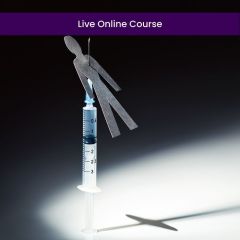Using Music Therapy to Treat Substance Use Disorders (1 CE)
Number of Credits: 1
This course is for: Clinical Psychologists, Counselors, and LMFTs
Course By: Tim Grigsby, PhD
Content By: Hohmann, L., Bradt, J., Stegemann, T., & Koelsch, S. (2017). Effects of music therapy and music-based interventions in the treatment of substance use disorders: A systematic review. PloS One, 12(11), e0187363.
Course Description: Traditional therapy programs for substance use disorder suffer from low treatment completion rates and high relapse rates following treatment. Identifying complementary treatment strategies is needed to improve addiction treatment outcomes. Music therapy (MT) and music-based intervention (MBI) has been shown to have beneficial impacts on a variety of psychological factors associated with substance use disorder including mood, stress management, self-esteem, motivation, and emotional expression. A review of existing quantitative and qualitative studies supports the use of MT/MBI for short-term treatment of substance use disorder, but there is a need for more longitudinal research to examine the long-term effects of MT/MBI on abstinence and relapse risk.
Learning Objectives:
- Compare and contrast music therapy (MT) and music-based intervention (MBI)
- Discuss the quantitative and qualitative findings on the effectiveness of MT/MBI for treating substance use disorders
- Identify 3 indirect psychological or general health benefits of MT/MBI for individuals with substance use disorders
Course Outline:
- Read and understand Effects of music therapy and music-based interventions in the treatment of substance use disorders: A systematic review
- Review the Course Description and Learning Objectives
- Reflect on direct and indirect benefits on substance use disorder that can occur after receiving music therapy or music-based intervention
- Work through the post-test questions; keep in mind that answer selections should be derived from the respective article
- Return to the referenced article for any missed questions and/or to better understand the strengths and limitations of receiving music therapy or music-based interventions to treat substance use disorder
Approvals:
| Board Approvals | American Psychological Association (APA), NBCC, Florida Board - Social Work, MFT, Counseling, and Psychology, NYSED - Social Work, MFT and Counseling Only, American Academy of Health Care Providers in the Addictive Disorders |
|---|---|
| CE Format | Online, Text-Based |







